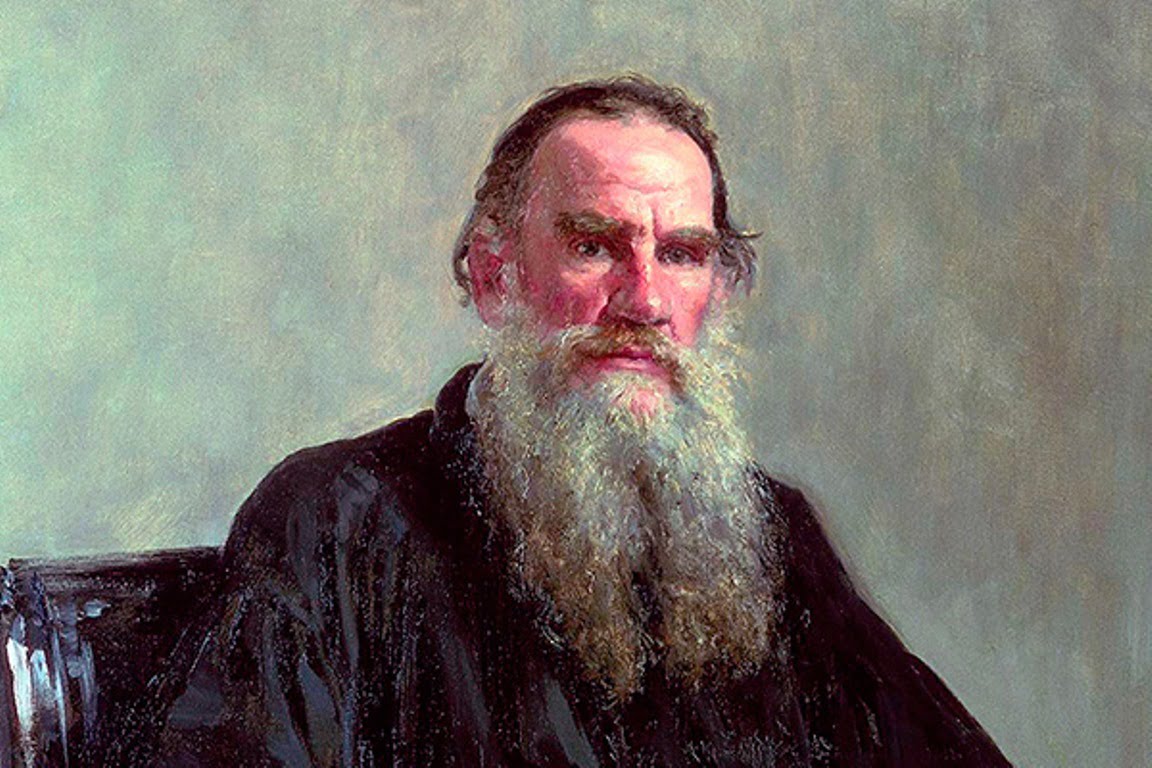The great Russian writer is often named among the most famous people whom the Russian Orthodox Church anathematized. Is this true or is this true?
It would seem that we asked ourselves a strange question about a well-known fact. However, often on the Internet one can come across the opinion that Leo Tolstoy was not anathematized in reality and this is a popular misconception. Where did this opinion come from? It is clear where it comes from - from the text of the “Definition of the Holy Synod”.
In the very text, published on February 24, 1901, it is stated: “Count Tolstoy preaches all this continuously, in word and in writing, to the temptation and horror of the entire Orthodox world, and thus undisguisedly, but clearly before everyone, he consciously and intentionally rejected himself from all communication with the Orthodox Church. <...> The Church does not consider him a member and cannot count him until he repents and restores his communion with her. Now we testify to this before the whole Church for the strengthening of those who are right and for the admonition of those who are in error, especially for the new admonition of Count Tolstoy himself.”
As we see, there is nothing about anathema or even excommunication - instead, the metropolitans who made the determination say that Tolstoy himself “snatched” himself from the church and that is why the hierarchs do not see him among Christians.
From Tolstoy's diaries it is clear that for many years he thought about religion and formed his own understanding of Christianity, which differed markedly from that proposed by the official church. The essence of this concept comes down to the fact that Christianity has ceased to be an ethical teaching, concentrating on form to the detriment of content. Tolstoy hoped to develop a new religion that does not promise happiness in the afterlife, but helps to achieve it on earth, which answers not the question “What to believe in?”, but the question “What and how to do?”
Of course, attempts to rethink dogmas displeased the church. At the same time, for a long time criticism of Tolstoy and his views was not official - the writer could be condemned in sermons or theological writings, but not in official printed publications or decisions of the Holy Synod. Everything changed after its release in 1899 novel “Resurrection”, in which Tolstoy showed the ministers of the church in a far from best light. Separately, Konstantin Pobedonostsev, the Chief Prosecutor of the Synod and one of the most influential statesmen of that time, who in “Resurrection” was depicted in the image of the official Toporov, went to:
The position that Toporov occupied, by its purpose, constituted an internal contradiction, which only a stupid person and devoid of moral sense could fail to see. Toporov possessed both of these negative properties. <...> He himself, deep down in his soul, did not believe in anything and found this state very convenient and pleasant, but he was afraid that the people would fall into the same state, and considered, as he said, it was his sacred duty to save the people from this.
No matter how indignant the church dignitaries were, they could not really react sharply and decisively, because their “enemy” was one of the main public intellectuals of the whole world. Therefore, the Synod did everything to, on the one hand, demonstrate indignation, and on the other, to prevent a scandal. The Synod even managed, in a sense, to shift responsibility onto the writer. By the way, Lev Nikolaevich himself answer I agreed to this decision with the wording:
The fact that I renounced the church that calls itself Orthodox is completely fair. But I renounced it not because I rebelled against the Lord, but, on the contrary, only because I wanted to serve Him with all the strength of my soul.
Can we consider that in its decision the Synod reports on the “anathema” of Tolstoy? To do this, let's understand the terms. In the "Orthodox Encyclopedia" we read:
Anathema (Greek ἀνάθεμα - excommunication from the Church), excommunication of a Christian from communication with the faithful and from the holy sacraments, applied as the highest church punishment for serious sins (primarily for betrayal of Orthodoxy and deviation into heresy or schism) and proclaimed conciliarly. Church anathema (or great excommunication) should not be confused with “excommunication,” which is the temporary exclusion of an individual from the church community with a ban on participating in the sacraments and (for clergy) holding church positions. Sometimes also called “minor excommunication,” it, unlike anathema, serves as a punishment for lesser offenses... does not require a conciliar decision and does not need a conciliar proclamation to take effect.
On the one hand, the temporary nature of the break with Tolstoy (“The Church does not consider him its member and cannot consider him, how long he will not repent”) makes it possible to talk about excommunication rather than anathema. At the same time, Tolstoy’s religious concept can hardly be considered a “lesser offense,” although the tone of the synodal resolution regarding the writer cannot be compared with in the words of Patriarch Tikhon, who anathematized the “godless” in 1918:
Come to your senses, madmen, stop your bloody reprisals. After all, what you are doing is not only a cruel deed, it is truly a satanic deed, for which you are subject to the fire of Gehenna in the future life - the afterlife and the terrible curse of posterity in the present - earthly life.
By the authority given to us by God, we forbid you to approach the Mysteries of Christ, we anathematize you, if only you still bear Christian names and although by birth you belong to the Orthodox Church.
In 1901, the Synod formulated its definition in such a way as to both condemn Tolstoy’s ideas and minimize the indignation of intellectuals. Although the second failed (for example, Chekhov wrote, that “the public reacted to Tolstoy’s excommunication with laughter”), the decision left leaves room for interpretation to this day. It is possible that it was Alexander Kuprin who associated the word “anathema” with Tolstoy, who published a story of the same name in 1913. In it, a protodeacon named Olympius reads the story “Cossacks,” and the next day, instead of anathematizing Tolstoy, proclaims “many years to come” to the writer.
Mostly true
Read on topic:
- Definition of the Holy Synod (https://www.prlib.ru/item/461216)
- L. Tolstoy. Diaries (http://tolstoy-lit.ru/tolstoy/dnevniki/index.htm)
- L. Tolstoy. Resurrection (http://az.lib.ru/t/tolstoj_lew_nikolaewich/text_0090.shtml)
- https://arzamas.academy/materials/1381
- https://diletant.media/duels/27972243/
- A. Kuprin. Anathema (http://www.lib.ru/LITRA/KUPRIN/anathema.txt)
If you find a spelling or grammatical error, please let us know by highlighting the error text and clicking Ctrl+Enter.







